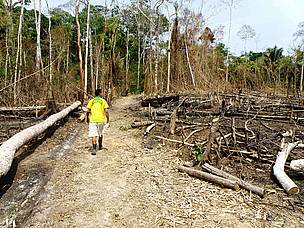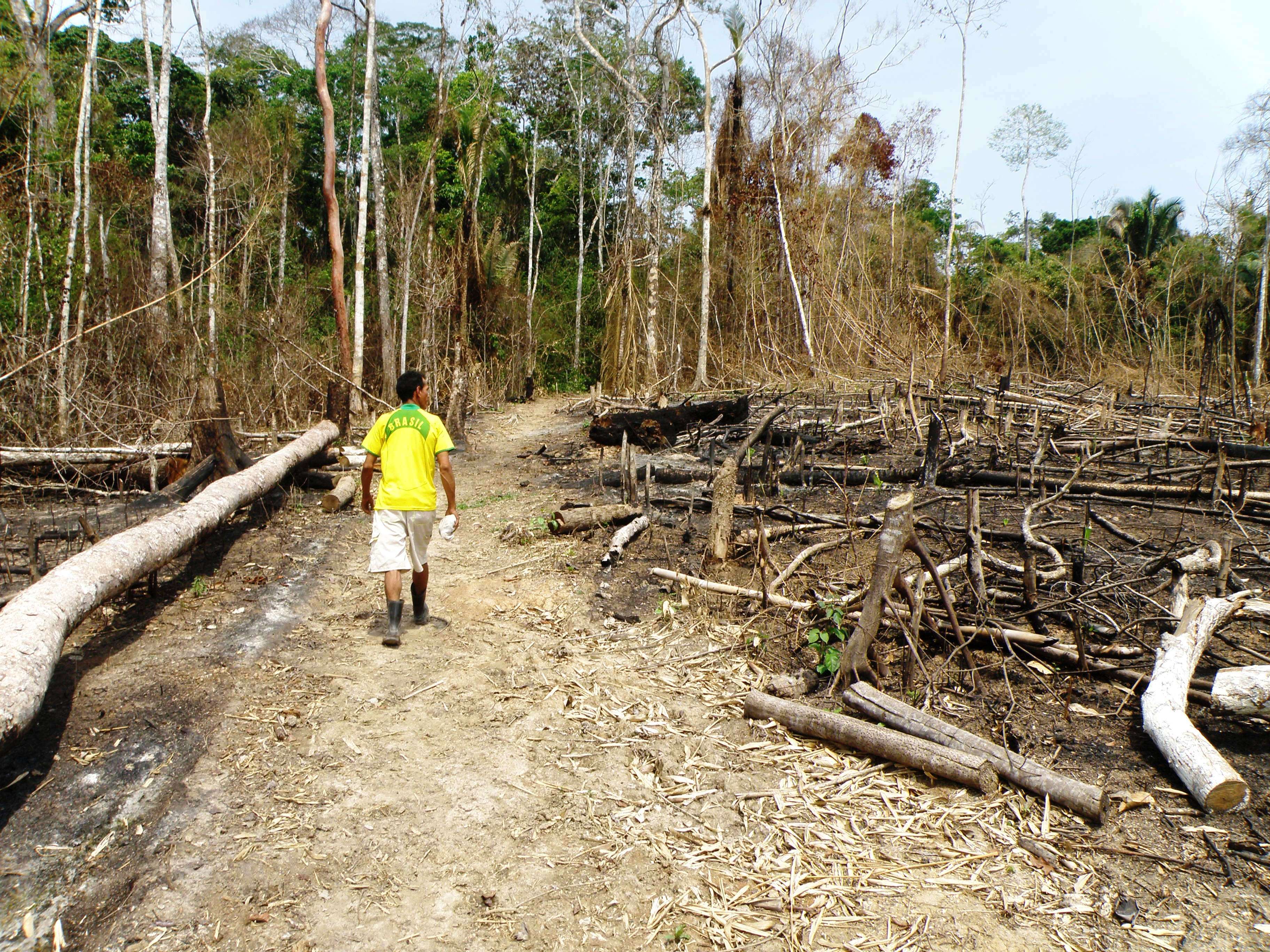Brazilian National Congress can grant amnesty to large public lands invaders
março, 13 2020
The original text of PM 910 creates a set of conveniences for those who illegally occupied and deforested public lands
The original text of PM 910 creates a set of conveniences for those who illegally occupied and deforested public landsBy WWF-Brazil
It has never been easier to invade and deforest public lands in Brazil. If the National Congress approves the report presented on Thursday (12) by Senator Irajá Abreu (Tocantins State) for the Provisional Measure (executive order) - PM 910/2019, whoever invaded public lands until December 2018 - even if he is a repeat invader or have farms in other parts of the country - can become an owner of areas of up to 2,500 hectares (the size of the island of Fernando de Noronha) paying in installments values well below those of the market. In short, it is a prize for those who stole public property.
Signed at the end of last year by President Jair Bolsonaro, after dismissing the president of Incra (National Institute for Colonisation and Agrarian Reform), who was opposed to facilitating the regularization of public areas invaded by groups of land grabbers, the original text of PM 910 creates a set of conveniences for those who illegally occupied and deforested public lands.
The measure allows invasions accomplished up to 2018 to be regularized - before its edition, the deadline, changed 2 years ago, was 2011. It authorizes that even large areas, up to 1,500 hectares, can be transferred to the invader's property without the need for any inspection. Therefore, there was a great expectation for Senator Irajá Abreu's report. It was hoped that it could fix the problems of the text prepared by the Federal Government and make it clear that the country will not make things easy for those who break the law. But, to everyone's surprise, his report doubled the bet: it expanded the benefits for land grabbers.
If his proposal is approved, the law will be changed to allow companies - not family farmers, as claimed by advocates of the measure - to become owners, without bidding, of the areas invaded by them. Under the current rule, public lands can only be passed on to companies through bidding and broad competition. In addition, they will not need to pay fees and emoluments to register the land at the Real Estate Registry, a benefit that currently only applies to small producers who come to register their only property.
But Irajá's project does not stop there: it allows a person who has previously benefited from the regularization of an invaded public area, but who has sold the land, to once again get in the line and benefit from the titulation of a new invasion . In short, those who live from the invasion, deforestation, legalization and sale of public lands - the land grabbers - will become within the law.
One of the novelties brought by the Irajá's report is the possibility that the invader who fails to obtain the title because he did not fulfill the requirements - for instance, those who have occupied the land after December 2018 - will be compensated for the “improvements” he has made on site. In short, whoever invaded and deforested public lands at odds with the law will be rewarded precisely for having deforested and occupied the area.
At a time when the country is experiencing a crisis of international credibility due to the negligent treatment given by the Federal Government to protection to the Amazon, which is experiencing the greatest peak of deforestation in more than a decade, the eventual approval of this provisional measure by the National Congress will fall like a bomb. The main beneficiaries of PM 910, those who occupied medium and large areas (between 1,000 and 2,500 hectares), correspond to less than 1% of the total of people who are in the queue for land regularization in the Amazon, according to INCRA's own data.
By amnestying invasions, the PM encourages this practice to continue. Currently, 35% of deforestation in the region is carried out on public vacant lands, that is, that are not settlements, Conservation Units - CUs or Indigenous Lands - ILs. But the effect does not stop there: with the signaling that Bolsonaro's government will legalize illegal occupations, deforestation in protected areas (CUs and ILs) has been growing exponentially, precisely because the number of invaders has skyrocketed in the last year. According to INPE's data, in 2019 deforestation in ILs was 74% higher than in 2018.
In addition to encouraging deforestation, the proposal also contributes to the rise of violence in the countryside. By allowing large areas (up to 2,500 hectares) to be titled without the need for inspection, the measure makes things easier for land grabbers who want to obtain title on lands that are actually owned by small farmers or traditional communities, a common process in the Amazon. It is because of this dispute that many deaths have already occurred.
Irajá Abreu's report is due to be voted on next week in the special committee and then must be analyzed by the plenary sessions of the Chamber of Deputies and the Federal Senate, successively.
WWF-Brazil believes that the country can only develop if compliance with the law is a non-negotiable principle. Granting amnesty to large invaders of public lands, rewarding an illegality with the title of property, goes against national interests. We hope that parties leaders understand the seriousness of the case and do not allow this measure to pass.





